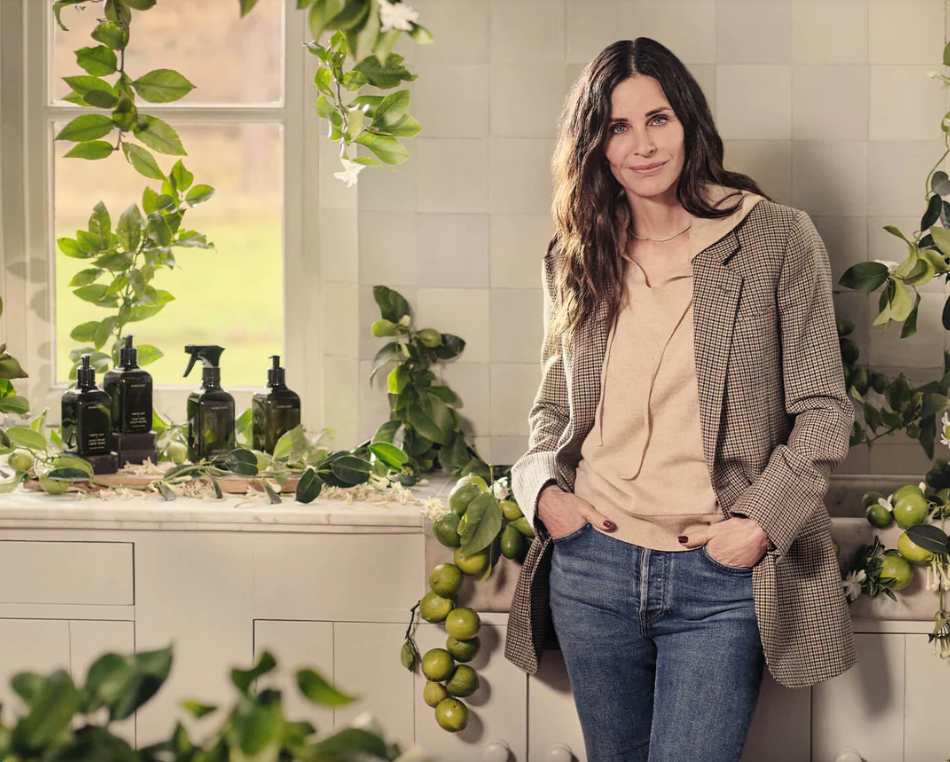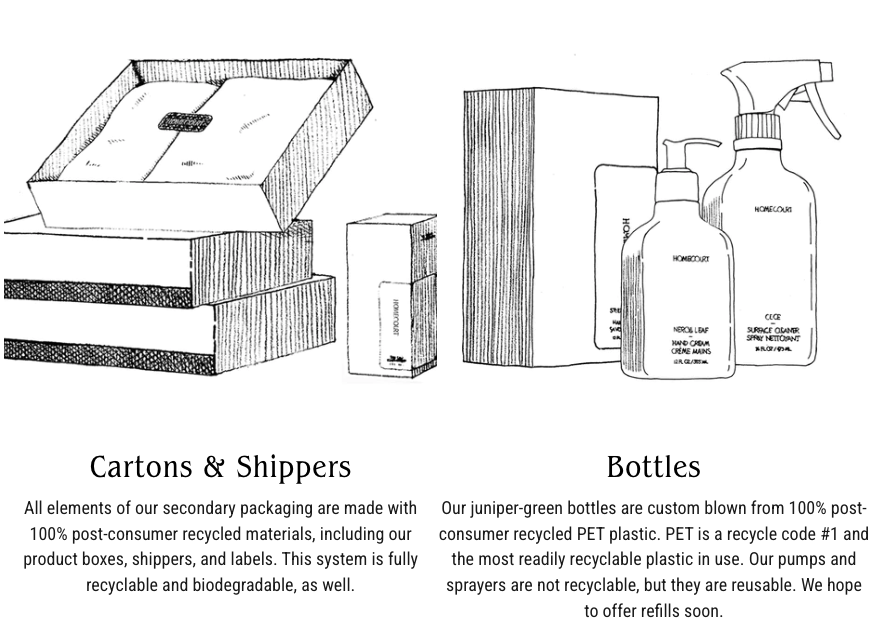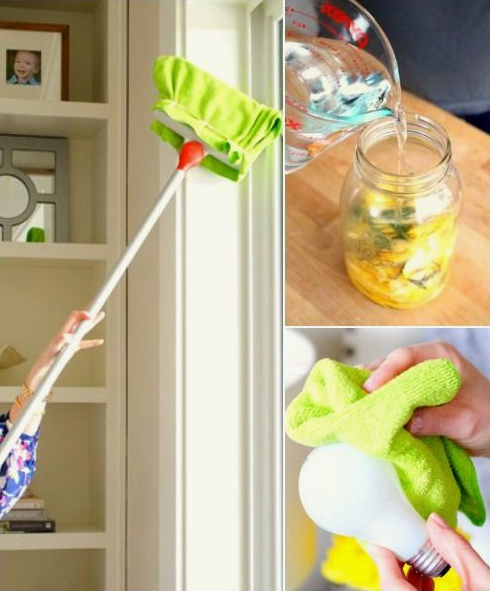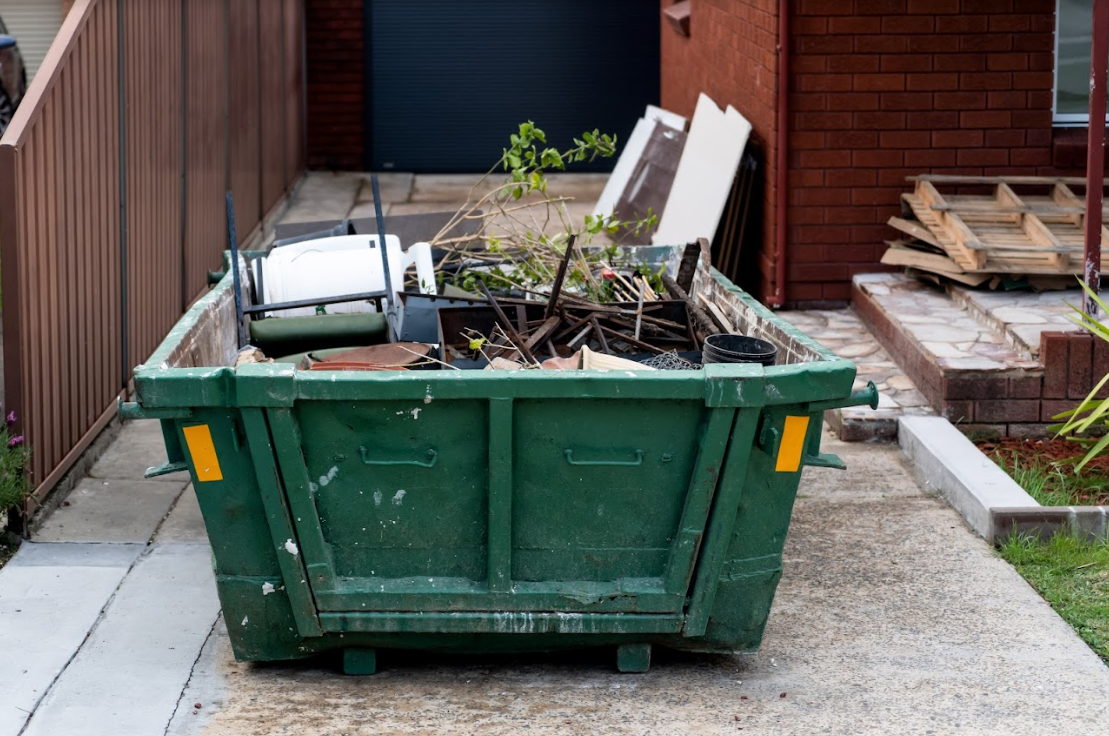Cruelty-Free Cleaning Products: Why They’re Better For Everyone

Actress Courtney Cox knows the importance of going cruelty free with her own line of cleaning supplies and candles!

In recent times, a remarkable shift towards ethical home cleaning choices is noticeable as individuals become more aware of the impact of their purchasing decisions. This shift is not merely a trend, but a reflection of a growing understanding of the larger implications our household choices have on animals and the environment.
Opting for cruelty-free home cleaning benefits not just the animals but also the environment and personal health. These products are often formulated without harmful chemicals, making them safer for both humans and animals. Moreover, the ethical stance against animal testing that accompanies cruelty-free products reflects a broader commitment to ethical consumption.
Every purchase we make sends a message about the kind of world we want to live in. When we choose green home cleaning products, we contribute to a larger narrative of responsible consumption. This connection between household choices and global impact underscores the importance of adopting cruelty-free and eco-friendly cleaning solutions.
The Ethical Argument for Cruelty-Free Products
Animal testing in the cleaning industry has been a point of contention for many years. Numerous animals suffer in labs where they are subjected to harsh chemicals found in cleaning products. The advent of non-animal tested home cleaners signifies a move away from this inhumane practice, aligning the cleaning industry with the ethical standards that many consumers now demand.
Compassionate consumerism is a growing movement that encourages individuals to make purchasing decisions that align with their values, particularly those related to animal welfare and environmental sustainability. By choosing cruelty-free cleaning products, consumers are taking a stand against animal testing and promoting a more ethical and humane industry standard.
We, as consumers, hold a moral responsibility to advocate for animals who cannot speak for themselves. Choosing cruelty-free cleaning products is a simple yet powerful way to voice our disapproval of animal testing and other unethical practices. It’s about aligning our cleaning habits with a broader ethical stance, promoting a culture of respect and care for all beings.

Environmental Upsides of Eco-Friendly Cleaning Solutions
The adoption of eco-friendly home cleaning solutions significantly contributes to reducing chemical pollution. Unlike conventional cleaning products, eco-friendly alternatives are often free from harmful chemicals that can seep into the soil and water, causing lasting damage to ecosystems. The reduction in chemical pollutants not only alleviates the burden on our environment but also fosters a safer, cleaner world for future generations.
Green home cleaning products are often formulated with biodegradable ingredients, which break down harmlessly in the environment. This property is crucial for preserving biodiversity as it minimizes pollution in various ecosystems. When harmful chemicals are eliminated from the equation, flora and fauna have a better chance to thrive, promoting a healthier, more balanced environment.
Conventional cleaning products often contain phosphates and other harmful chemicals that, when washed down the drain, find their way into water bodies, causing a ripple effect of damage to aquatic life. The shift towards sustainable home care products is a proactive approach to curbing this issue. By opting for cleaners free from such harmful substances, we are playing a part in preserving aquatic ecosystems, ensuring they remain vibrant and life-sustaining.
Personal Health Benefits of Ethical Cleaning Products
The transparency in ingredient lists is a hallmark of ethical home cleaning products. Such transparency empowers consumers with the knowledge of what exactly is in the products they use, enabling them to make informed choices. The absence of harsh chemicals and the presence of natural or plant-derived ingredients often translate to lower risks of allergies, skin irritations, and other health issues commonly associated with conventional cleaning products.
The harsh chemicals found in many conventional cleaning products can have adverse effects on the respiratory system, skin, and eyes. Environmentally conscious home cleaning not only advocates for animal rights but also significantly contributes to creating a healthier living environment for individuals and families.
The indoor air quality can be severely affected by the volatile organic compounds (VOCs) present in many conventional cleaning products. These compounds evaporate into the air, polluting the indoor environment. Ethical cleaning products often have lower levels of VOCs or none at all, which is instrumental in improving indoor air quality. By reducing the chemical load in the air, we breathe; ethical cleaning products promote a healthier, more comfortable living space.

How to Transition to Cruelty-Free Home Cleaning
Transitioning to cruelty-free home cleaning begins with identifying reliable certifications that vouch for a product’s cruelty-free status. Certifications such as Leaping Bunny or Cruelty-Free International are reputable indicators of a product’s adherence to ethical standards. By looking for these certifications, consumers can make informed purchases, ensuring their cleaning products align with their values.
Besides certifications, understanding ingredient lists and company ethics are crucial steps in making informed purchases. Companies that are transparent about their ingredient sourcing, testing practices, and environmental impact are often better choices for those looking to transition to non-animal-tested home cleaners. Additionally, engaging with communities dedicated to cruelty-free living can provide valuable insights and recommendations.
A seamless transition to ethical home cleaning products requires a mix of research, community engagement, and gradual substitution of conventional products with cruelty-free alternatives. Starting with easily substitutable products like dish soap or surface cleaners can make the transition less daunting. Additionally, sharing experiences and learning from others who have already made the switch can provide valuable guidance, making the process more manageable and enjoyable.
Driving Industry Change by Supporting Cruelty-Free Brands
The principle of supply and demand is at the core of market dynamics. When consumers prioritize ethical home cleaning products, they signal to manufacturers the importance of cruelty-free and eco-friendly practices. By consciously choosing to support cruelty-free brands, consumers wield their purchasing power to drive positive change, encouraging the industry to evolve towards more humane and sustainable practices.
Every ethical purchasing decision contributes to a larger narrative that challenges the status quo of the cleaning products industry. As the demand for cruelty-free and eco-friendly products grows, manufacturers are incentivized to align their practices with these values. This alignment fosters a competitive market for environmentally conscious home cleaning products, propelling an industry-wide evolution towards ethical and sustainable practices.
A thriving market for environmentally conscious home cleaning products is beneficial for everyone—consumers, animals, and the planet. As more brands step into the realm of cruelty-free and eco-friendly practices, the variety and quality of products available are bound to increase. This expansion not only provides consumers with better choices but also fosters a culture of innovation and responsibility in the cleaning products industry.






